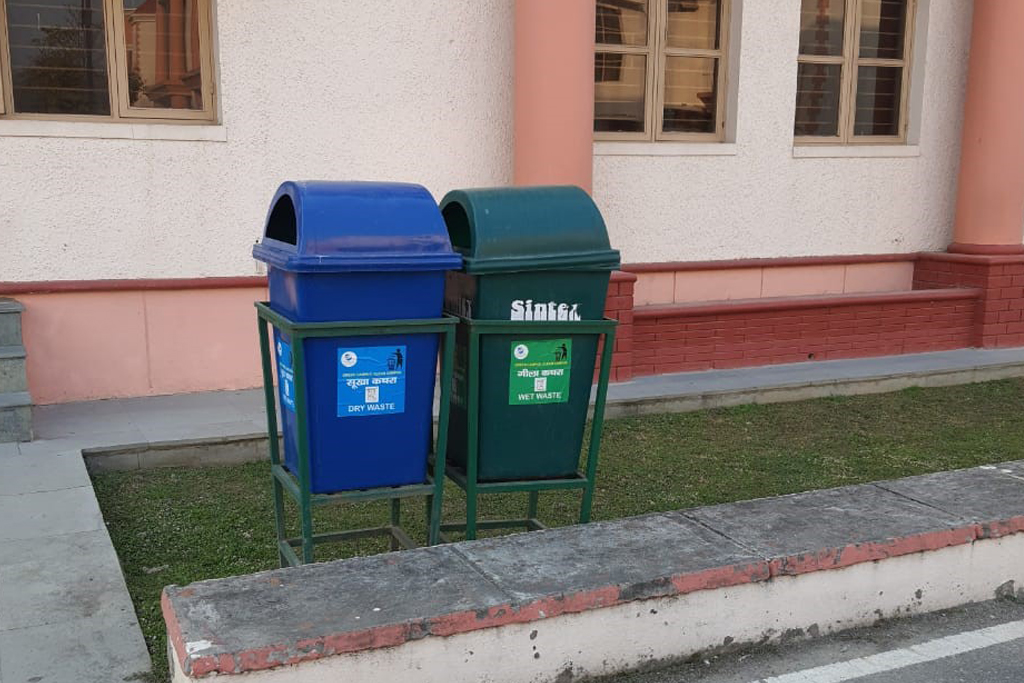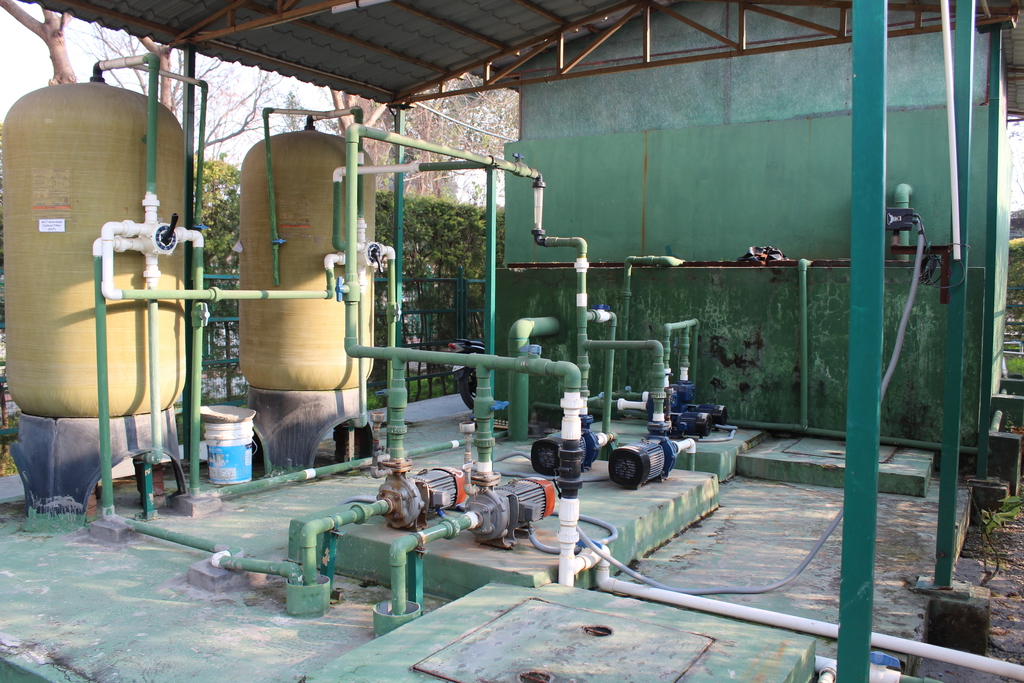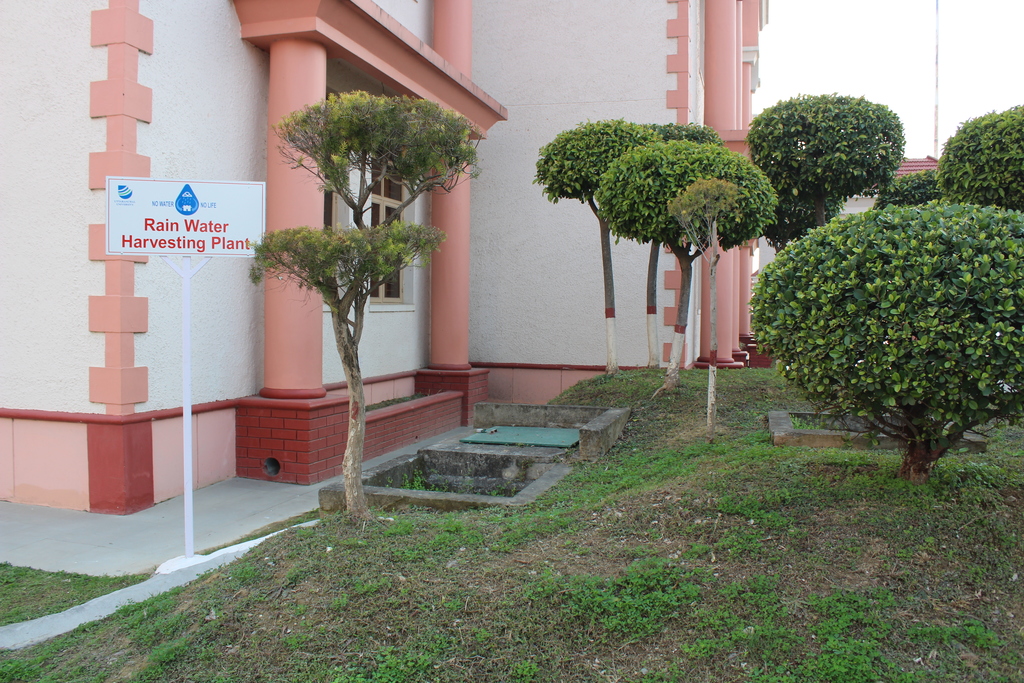INTRODUCTION
The importance of Green cover and its relevance in the present day context is a subject that is pertinent and crucial for sustainable development especially in the context of urbanization. The Urban Green Guidelines 2014 Town and Country Planning Organization, Government of Indian Ministry of Urban Development lays down the guidelines and requisite greening of urban areas in an effort to minimize and mitigate the effects of concretization of the otherwise green areas including forests and agricultural lands.
Buildings have extensive direct and indirect impacts on the environment. During their construction, occupancy, renovation, repurposing, and demolition, buildings use energy, water, and raw materials, generate waste, and emit potentially harmful atmospheric emissions. These facts have prompted the creation of green building standards, certifications, and rating systems aimed at mitigating the impact of buildings on the natural environment through sustainable design.
Development and sustenance of green cover should go hand in glove and one should not be compromised for the other. The campus green cover drive across universities globally is an initiative to sensitize the younger generations on the necessity of a compensator green cover and plantations. AICTE has also called for a Clean and Smart Campus initiative across all the universities in India.
The rapid increase in all forms of wastes disposed thoughtlessly and the consumption of depleting resource is a global problem. The environmental issues, nowadays, remain at the core of the policy of educational institutions. The people associated with the organisation need to have environmental awareness to safeguard our environment. In today’s scenario the young generation is highly inclined in taking self-responsibility to protect our environment. The educational institutions have taken this opportunity to hone this awareness and motivate the students a sense of promoting green campuses and protecting environmental damages. There is a dire need to create mass environmental awareness to minimise the environmental damages. The universities and colleges can collectively promote environmental awareness by many developmental plans and activities. Uttaranchal University displays sensitivity to issues like climate change and environment degradation. Thus Uttaranchal University takes lead in protecting our mother nature by adopting eco-friendly activities and to spread awareness by various programmes.
Alternate Sources of Energy
Uttaranchal University strives hard to reduce the consumption of energy and has also adopted a range of alternate sources of energy. One measure in this aspect is its effort to tap the solar energy to minimise carbon emission. Currently, there is 208 KWp roof top PV Solar plant installed in the university campus for generation of electricity and also connected with grid. On an average 25000 units per month is generated through solar production. All the hostels have been installed with ‘Solar Heating water system’.
Solid waste
The university has an integrated waste management system to ensure clean and green campus. Non-valuable solid waste is disposed off with the help of ‘Nagar Nigam Dehradun’. The waste generated are segregated as wet and dry waste at the initial stage by collecting them in green and blue dustbins respectively, which is in turn collected by the house-keeping staff of the university every morning and stored at the central disposal yard.
Bio-Medical Waste
An MOU is signed with ‘Medical Pollution control Committee’ authorized by Uttarakhand Environment Protection & Pollution Control Board’ and the hazardous waste generated in the labs during the process of various experiments are collected by them in terms of M.O.E.F. directives & Bio-Medical Waste Management Rules – 2016 amended in 2018 & 2019.
BIOMEDICAL WASTE AGREEMENT – Click Here To View
BIOMEDICAL WASTE CERTIFICATE – Click Here To View
UPCB – Provisional Consent Order (CCA) – Click Here To View
E-Waste management
Uttaranchal University has tied-up and signed an MoU with EWRI (E-Waste Recycle India) an authorised agency by Govt of U.P for e-waste collection and recycling.
E-WASTE AGREEMENT – Click Here To View
Hazardous Waste
The university has registered itself with ‘Uttarakhand Pollution Control Board’, Dehradun and strictly follows the norms of Management and Trans boundary Movement Rules – 2016.
AIR WATER AND HAZARDOUS WASTE CERTIFICATE – Click Here To View
HAZARDOUS WASTE COLLECTION CERTIFICATE – Click Here To View
Rainwater Harvesting
University has proper Rainwater harvesting plant in the campus and is done through the several catch pits constructed to collect the rainwater and is further channelised to the underground water tanks. Thus, collected water is further used for irrigation with the help of water tanker. Besides this there are open borewell and sufficient open area as lawn for open recharging of ground water level.
Wastewater
Liquid wastes collected from various Academic blocks, Administrative blocks and hostel buildings is diverted to STP for treatment and stored in underground tank, which is later used for irrigation and other construction activities.
Policy On Green & Clean Campus – Click Here To View
Energy Audit Report of UU (2020-21) – Click Here To View
Energy Audit Report of UU (2019-20) – Click Here To View
Energy Audit Report of UU (2018-19) – Click Here To View
Energy Audit Report of UU (2017-18) – Click Here To View
Green and Environmental Audit Report – Click Here To View
GEM Certificate – Click Here To View
Energy Audit Certificate 2020-2021 – Click Here To View



































